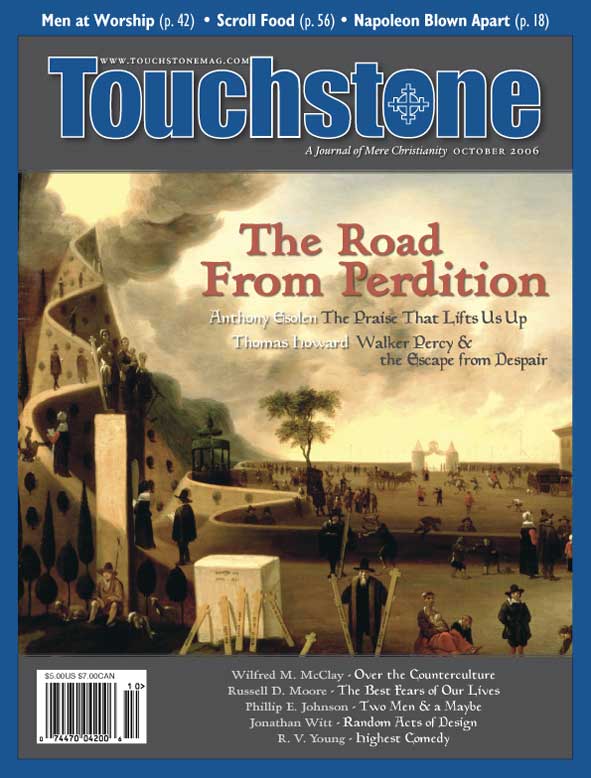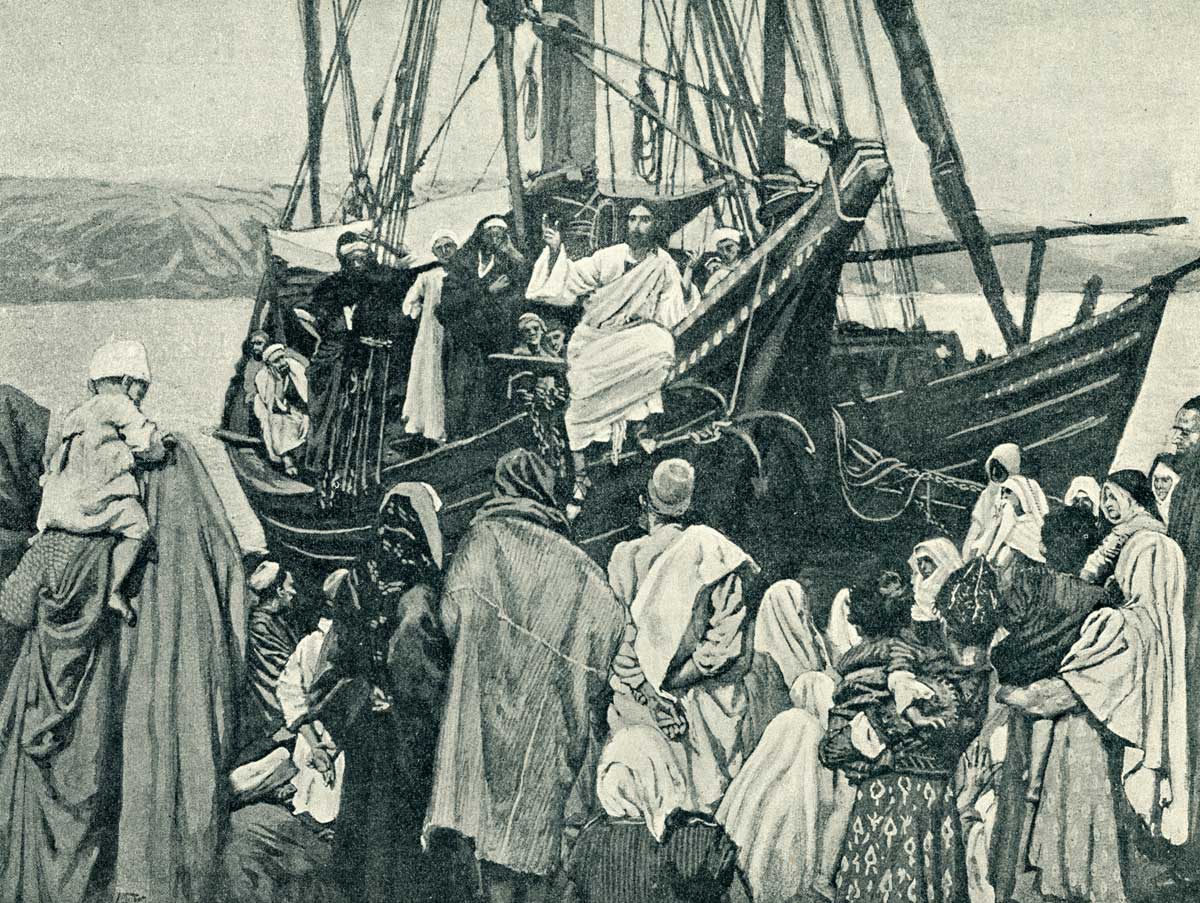The Battle of Abraham
Lincoln’s Melancholy: How Depression Challenged a
President and Fueled His Greatness
by Joshua Wolf Shenk
Houghton Mifflin, 2005
(350 pages, $25.00, hardcover)
reviewed by Beth Impson
All too often medical diagnosis [of historical figures] is used to end, rather than begin, a conversation,” writes Joshua Wolf Shenk in Lincoln’s Melancholy. But such diagnosis, he adds, is “no substitute for knowing how the individual figures, and the communities they lived in, understood themselves.”
An independent scholar whose work has appeared in such magazines as Harper’s, The Atlantic, and The New Yorker, Shenk spent seven years researching primary sources—Lincoln’s letters and speeches, the journals and letters of people who knew him, oral histories—as well as the condition of depression as seen in the past and today. He found a man who had clearly suffered from major, chronic depression but had accepted it, learned to cope with its debilitating effects, and used it to live a satisfying, purposeful life.
Shenk considers the story of Lincoln’s depression especially important today, when nearly a million people worldwide commit suicide annually, because it “illuminates not only the nature of suffering but also the way it can become part of a productive life.” Today, we consider depression a mental illness that automatically unfits someone for living well unless it is eradicated by medical treatment.
But in Lincoln’s day, “melancholy” was seen as one of several temperaments, each with its assets and drawbacks. Melancholics might have been especially vulnerable to inexplicable sadness, which could certainly spiral into illness, but also had potential for great wisdom and creativity. All of Lincoln’s acquaintances recognized his melancholy; none considered it a reason to distrust or despise him.
Man Most Miserable
Shenk lays out three main phases of Lincoln’s melancholy, which he calls “fear,” “engagement,” and “transcendence.” Lincoln suffered two major breakdowns as a young man, and in this first period refused to carry a pocket-knife for fear of harming himself. He once described himself as “the most miserable man living,” adding, “I must die or be better.”
But around 1841, Lincoln entered into a phase Shenk calls “engagement”: He accepted his depression and began seeking both ways and a reason to live. Certain techniques helped him cope: He was well known as an adept joke and story teller, once telling a White House visitor, “If I couldn’t tell these stories, I would die.” He also found an outlet in reading and writing poetry, quoting melancholic poems, and putting into verse stories of suicide and his own emotional distress.
During this period, after much consideration, Lincoln embraced a religious faith that sustained him the rest of his life. His determination to live and to believe culminated in a clear purpose: the desire to “impress himself upon [the day’s events] as to link his name with something that would redound to the interest of his fellow man.”
Lincoln specifically pursued this desire to be of service through his battle to reject the extension of slavery and maintain the Union. He made this choice not for personal gain, but according to a deep sense of having been chosen, placed in that moment in history with “‘so vast and so sacred a trust’ that he felt that he had no moral right to shrink; nor even to count the chances of his own life, in what might follow.”
Lincoln’s melancholy “lent him clarity, discipline, and faith in hard times.” Learning to live with it made him see both himself and the world around him clearly, especially the inescapable pain, but also the possibilities of alleviating at least some of that pain. And “the ethic that he proposed for his country—continued struggle to realize an ideal, knowing that it could never be perfectly attained—was the same ethic he had used to govern himself.”
When a friend once came to see him at the White House, for example, Lincoln appeared in the depths of despair. Yet the friend found him writing, working at his chosen purpose—to help “guide his nation through its immediate struggle” to a new unity. Because he had come to see suffering “as a potential catalyst for emotional growth,” he could also see it as a catalyst for national growth.
Purpose based on faith: this was the key to the final stage of Lincoln’s melancholy, as he transcended suffering, self, and the present to work towards “the chance to effect something meaningful and lasting.”
From Suffering, Hope
Lincoln’s Melancholy, Shenk emphasizes, is “a story, not a theory or a principle or a program.” He offers it as a story of hope: Here was a man who suffered greatly and yet lived well, not despite that suffering but at least in part because of it. “The hope is not that suffering will ever go away,” Shenk writes. “The hope is that suffering, plainly acknowledged and endured, can fit us for the surprising challenges that await.”
For Christians living in a culture in which “anything short of constant cheer [is] perceived as a violation of the American religion,” Lincoln’s Melancholy serves as a vivid reminder of what Scripture teaches us: “We rejoice in our sufferings, knowing that suffering produces endurance, and endurance produces character, and character produces hope” (Rom. 5:3–4).
Beth Impson is Professor of English at Bryan College (named for William Jennings Bryan) in Dayton, Tennessee, and the author of Called to Womanhood (Crossway). She and her husband have five children and eleven grandchildren and attend Grace Bible Church.
subscription options
Order
Print/Online Subscription

Get six issues (one year) of Touchstone PLUS full online access including pdf downloads for only $39.95. That's only $3.34 per month!
Order
Online Only
Subscription

Get a one-year full-access subscription to the Touchstone online archives for only $19.95. That's only $1.66 per month!
bulk subscriptions
Order Touchstone subscriptions in bulk and save $10 per sub! Each subscription includes 6 issues of Touchstone plus full online access to touchstonemag.com—including archives, videos, and pdf downloads of recent issues for only $29.95 each! Great for churches or study groups.
Transactions will be processed on a secure server.
more from the online archives
calling all readers
Please Donate
"There are magazines worth reading but few worth saving . . . Touchstone is just such a magazine."
—Alice von Hildebrand
"Here we do not concede one square millimeter of territory to falsehood, folly, contemporary sentimentality, or fashion. We speak the truth, and let God be our judge. . . . Touchstone is the one committedly Christian conservative journal."
—Anthony Esolen, Touchstone senior editor









